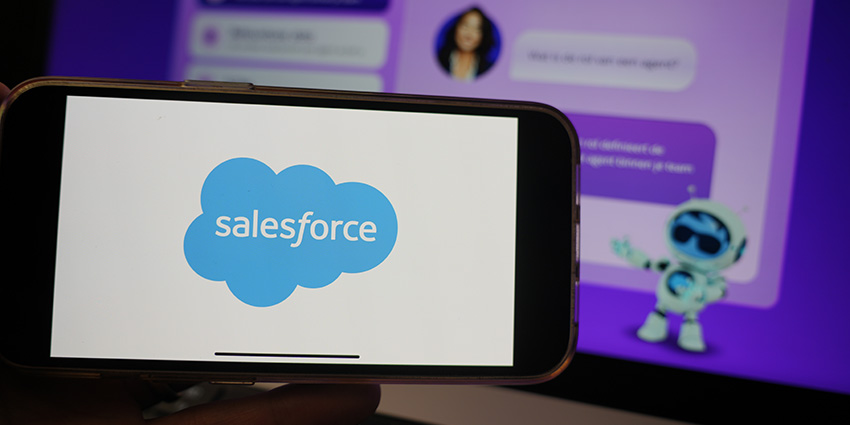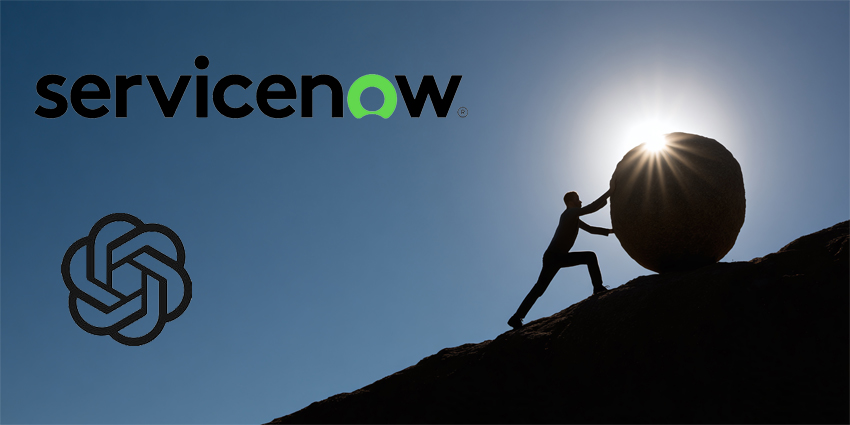Marc Benioff, CEO of Salesforce, has taken yet another swipe at Microsoft.
Over the past year, Benioff has done so multiple times, chastising its Copilot product.
Indeed, he repeatedly referred to the product as “Clippy 2.0” while accusing Microsoft of “disappointing many customers” and “spilling data everywhere“.
However, the CEO has found a new stick with which to beat Microsoft: its ethics.
Specifically, Benioff shared his thoughts on the European Commission’s ongoing investigation into its bundling of Microsoft Teams with Office 365 – after Slack filed a complaint in July 2020.
Upon launching the investigation, the Commission revealed concerns about Microsoft “abusing” its market position with “anti-competitive” practices.
Until now, the CEO has kept quiet on the matter, stressing that the lawsuit predates Salesforce’s acquisition of Slack.
However, the gloves are now off as the overlap – and competition – between the two tech giants increases in the agentic AI era.
“You can see the horrible things that Microsoft did to Slack before we bought it,” said Benioff during an interview with SaaStr.
“They were running their playbook and did a lot of dark stuff, and it’s all written up in an EU complaint that Slack made before we bought them.
You never really know what Microsoft is going to do, but that was pretty nasty.
“I don’t really admire what Microsoft did with Slack and how they used a lot of their assets to really try to attack them when Slack wasn’t really going up against Microsoft,” continued Benioff.
“You can see that playbook being used. We saw it with Netscape, and we saw it in many things over time. That playbook should get ripped up and thrown away.”
Netscape was an internet browser and an early competitor to Internet Explorer. Yet, Microsoft edged them out by bundling Internet Explorer with Windows.
Additionally, the tech giant was accused of deploying a “shell execute bug” within Windows, making it difficult for users to deploy the Netscape Navigator.
However, Microsoft is far from the first tech juggernaut to leverage such a “playbook”.
For instance, Apple faces a lawsuit from the Department of Justice (DOJ) for several anti-competitive maneuvers relating to its iPhone ecosystem.
These maneuvers include not giving “super apps” – like WeChat – full functionality on iPhone, poor connectivity between non-Apple smartwatches and iPhones, and its digital wallet locking out third parties.
While Benioff acknowledged that there has always been aggression in software, he stressed that “there are limits” that vendors should adhere to.
Now, the CEO thinks that Microsoft is again dusting off its playbook.
“You can see that playbook getting played out right now between OpenAI and Microsoft,” he said. “It’s a weird dynamic.
“[OpenAI recently] revealed their stack for the first time—their data center, apps, APIs, all the different aspects of the future of OpenAI. And the words “Microsoft,” “Azure,” and “Copilot” weren’t on the stack. That was extremely interesting.
You can see how Microsoft is really starting to run a separate playbook against OpenAI.
To Benioff’s point, recent reports hint at Microsoft’s ambition to become independent of OpenAI by expanding its AI unit and building competitive models.
However, with OpenAI’s brand recognition, rapid release cadence, and recent expansion moves – like enabling a shopping experience in ChatGPT – that may prove a formidable challenge.
The Future of Slack at Salesforce
When Salesforce acquired Slack in June 2021, it envisioned a collaborations platform that acts as a “digital HQ” for businesses. That concept came ahead of its time.
Now, with AI agents – or “digital labor” – collaborations tools are becoming an operational center point, where employees draw knowledge from other systems via the native virtual assistant, without ever leaving that “digital HQ”.
In some cases, they’re even automating actions in these third-party systems.
Unfortunately, Salesforce proved slow in making this vision a reality. Now, rivals like Microsoft and Zoom are teaming up with other tech stalwarts to walk the same path.
Indeed, Zoom and AWS recently announced such a partnership to “change the future of work”.
However, Benioff still has high hopes for the collaborations offering and plans to accelerate its work to ensure Slack becomes that operational center point.
“Slack had a huge year last year,” he stressed. “We allow all our sales force to sell it [and] get quota credit for it, and we basically made it a peer product with the rest of our products.
“Up to that point, we were trying to keep it how it was. Give it to more reps, invest in it as a separate company, but eventually we hit the button and said: “You know what? This thing is amazing, but it needs to come together with our entire platform.”
You’ll see that incrementally, especially as we get to Dreamforce. [You’ll see] how all the things that are critical with Slack are going to be deeply integrated with Salesforce.
As the company makes such moves, Slack becomes the ideal choice for Salesforce-centric brands.
However, Microsoft Teams has an unassailable lead in collaborations. Indeed, the solution has approximately 320 million daily active users.
Even a landmark judgment from the European Commission is unlikely to impact its dominance.
On the part of Salesforce and the EU, it all seems too little, too late.






